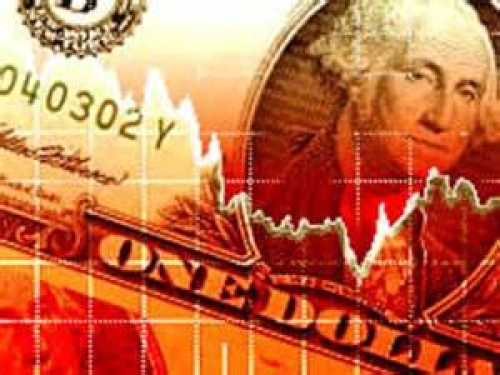 In the first quarter’s revised U.S. gross domestic product (GDP) numbers, we found consumer spending in the U.S. economy was slow, dragging U.S. economic growth lower. Going forward, I can’t help but to expect more of the same.
In the first quarter’s revised U.S. gross domestic product (GDP) numbers, we found consumer spending in the U.S. economy was slow, dragging U.S. economic growth lower. Going forward, I can’t help but to expect more of the same.
We are already getting warnings from major financial institutions that U.S. GDP growth in the second quarter will be dismal. The Goldman Sachs Group, Inc expects the U.S. economy to grow at only 0.8% in the second quarter. The Royal Bank of Scotland Group and Barclays PLC both expect U.S. GDP growth to come in at 0.5%.
It shouldn’t go unnoticed: consumer spending makes up about two-thirds of the GDP in the U.S. economy. If consumer spending declines, or remains stagnant, then it would be foolish to expect the U.S. economy to experience any growth.
Let’s look at retail and food services sales, a key indicator of consumer spending in the U.S. economy. Since the third quarter of 2009, the average rate of growth quarter-over-quarter in real retail and food services sales in the U.S. economy has been 0.9%. In the second quarter (April though June) of 2013, these sales only increased 0.81% from the previous quarter.
Unemployment—another indicator of pressure on consumer spending—remained a problem throughout the second quarter. While the mainstream media and politicians told us everything is great on the employment front, the reality was quiet the opposite.
In the U.S. economy, the underemployment rate, which provides a better look at the U.S. labor market situation, actually increased from 13.9% in April to 14.3% in June of 2013. It’s common sense that when people don’t have jobs, they pull back on their spending.
Aside from a slowdown in retail and food services sales and rising real unemployment, the U.S. housing market remains depressed, as real homes buyers stay away from the market. Right now, we have institutions fueling home purchases. First-time home buyers fuel the economy as they buy lawnmowers, appliances, and furniture to fill their homes. Recently, I’ve read stories of big institutions buying homes in bulk (to rent out) and filling them with appliances they are buying directly from overseas in bulk.
All this happened during the second quarter of 2013, as the key stock market indices continued to rally.
In the first half of this year, key stock indices like the S&P 500 rose roughly 13%. Is this sustainable when the U.S. economy is struggling? I seriously doubt it.
Sure, markets can stay irrational for longer than most expect, but eventually, regression to the mean occurs. And when it does, it won’t be a pretty sight.

